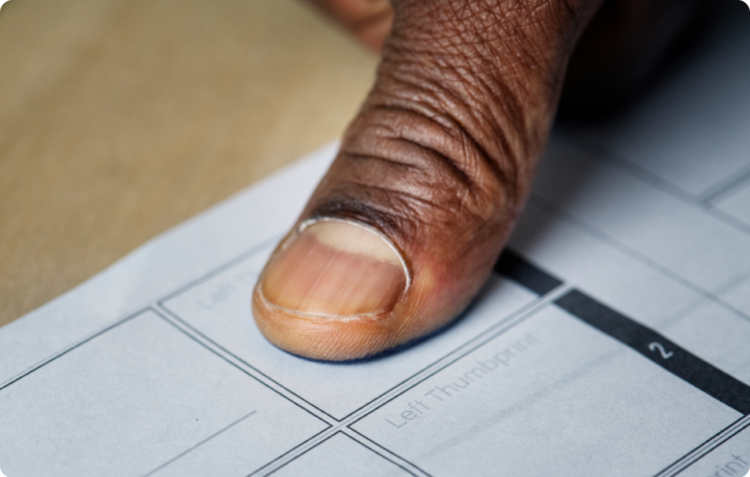Introduction
In the age of digital transformation, the concept of democracy is evolving alongside technological advancements. Blockchain technology, known for its decentralized and tamper-resistant nature, has the potential to revolutionize traditional voting systems by providing a secure and transparent platform for conducting elections. In this article, we'll explore the features, advantages, disadvantages, possible improvements, and comparison to old methods of blockchain voting systems in the context of digital democracy.
Decentralization: Blockchain voting systems operate on a decentralized network of computers, eliminating the need for a central authority to oversee the voting process. This ensures greater transparency and reduces the risk of manipulation or fraud.
Immutability: Once a vote is recorded on the blockchain, it becomes immutable and cannot be altered or tampered with. This provides a high level of security and trust in the integrity of the voting process.
Transparency: Blockchain technology allows for real-time visibility into the voting process, enabling stakeholders to track and verify votes as they are cast and recorded on the blockchain. This transparency helps to build confidence in the election results.
Security: Blockchain voting systems use cryptographic algorithms to secure and encrypt votes, making them resistant to hacking or cyber attacks. This ensures the confidentiality and integrity of voter data.
Accessibility: Blockchain voting systems can be accessed remotely through digital devices such as smartphones or computers, making it easier for voters to participate in elections from anywhere in the world.
Enhanced Security:
The decentralized and tamper-resistant nature of blockchain technology ensures the security and integrity of the voting process, reducing the risk of fraud or manipulation.Transparency and Auditability:
Blockchain voting systems provide real-time transparency and auditability, allowing stakeholders to verify the authenticity of votes and ensure the accuracy of election results.Increased Voter Participation:
Digital voting systems make it easier for voters to participate in elections, particularly for individuals who may face barriers such as physical disabilities or geographic distance.Cost Efficiency:
By eliminating the need for paper ballots, manual counting, and physical polling stations, blockchain voting systems can reduce the cost and resources required to conduct elections.Faster Results:
The automated and digitized nature of blockchain voting systems enables faster tabulation and reporting of election results, reducing the time and effort required to tally votes manually.
Technical Complexity:
Implementing and maintaining blockchain voting systems may require technical expertise and infrastructure, which could pose challenges for some electoral authorities.Security Concerns:
While blockchain technology offers robust security features, it is not immune to vulnerabilities or attacks. Malicious actors could still attempt to exploit weaknesses in the system, posing risks to the integrity of the voting process.Privacy Issues:
Blockchain voting systems must strike a balance between transparency and privacy, ensuring that voter identities and preferences remain confidential while still maintaining transparency and auditability.Digital Divide:
Access to digital devices and internet connectivity may be limited in certain populations, leading to disparities in voter participation and access to blockchain voting systems.Regulatory and Legal Challenges:
The adoption of blockchain voting systems may face regulatory and legal hurdles, including concerns about compliance with existing election laws and regulations.
User-Friendly Interfaces:
Designing intuitive and user-friendly interfaces for blockchain voting systems can help to simplify the voting process and encourage greater participation.Education and Awareness:
Providing education and awareness campaigns about blockchain voting systems can help to build trust and confidence among voters and electoral authorities.Interoperability:
Enhancing interoperability between blockchain voting systems and existing electoral infrastructure can facilitate the adoption and integration of new technologies.Enhanced Security Measures: Implementing additional security measures such as multi-factor authentication and encryption protocols can further enhance the security and integrity of blockchain voting systems.
Regulatory Frameworks:
Developing clear and comprehensive regulatory frameworks for blockchain voting systems can address legal and compliance concerns and provide guidance for electoral authorities and stakeholders.
Traditional paper-based voting systems rely on physical ballots, manual counting, and centralized authorities to administer elections. While these methods have been used for centuries, they are often prone to inefficiencies, errors, and vulnerabilities such as ballot tampering or voter fraud. In contrast, blockchain voting systems offer a more secure, transparent, and efficient alternative by leveraging decentralized technology to record and verify votes in a tamper-resistant manner. While blockchain voting systems may pose technical challenges and require adaptation, they have the potential to revolutionize the democratic process by increasing security, accessibility, and trust in electoral outcomes.
Conclusion:
Blockchain voting systems represent a promising solution for enhancing the integrity, security, and transparency of democratic elections in the digital age. By leveraging decentralized technology, these systems offer numerous advantages over traditional voting methods, including enhanced security, transparency, and accessibility. While challenges remain in terms of technical implementation, regulatory compliance, and public acceptance, the potential benefits of blockchain voting systems for digital democracy are undeniable. With continued innovation, education, and collaboration, blockchain voting systems have the potential to transform the democratic process and empower citizens to participate in elections with confidence and trust in the integrity of the outcome.

Upvoted. Thank You for sending some of your rewards to @null. Read my last posts to make sure that BLURT burning is profitable for you. Before using this bot please make sure your account has at least 100 BP. Get more BLURT:
@ mariuszkarowski/how-to-get-automatic-upvote-from-my-accounts@ blurtbooster/blurt-booster-introduction-rules-and-guidelines-1699999662965@ nalexadre/blurt-nexus-creating-an-affiliate-account-1700008765859@ kryptodenno - win BLURT POWER delegation